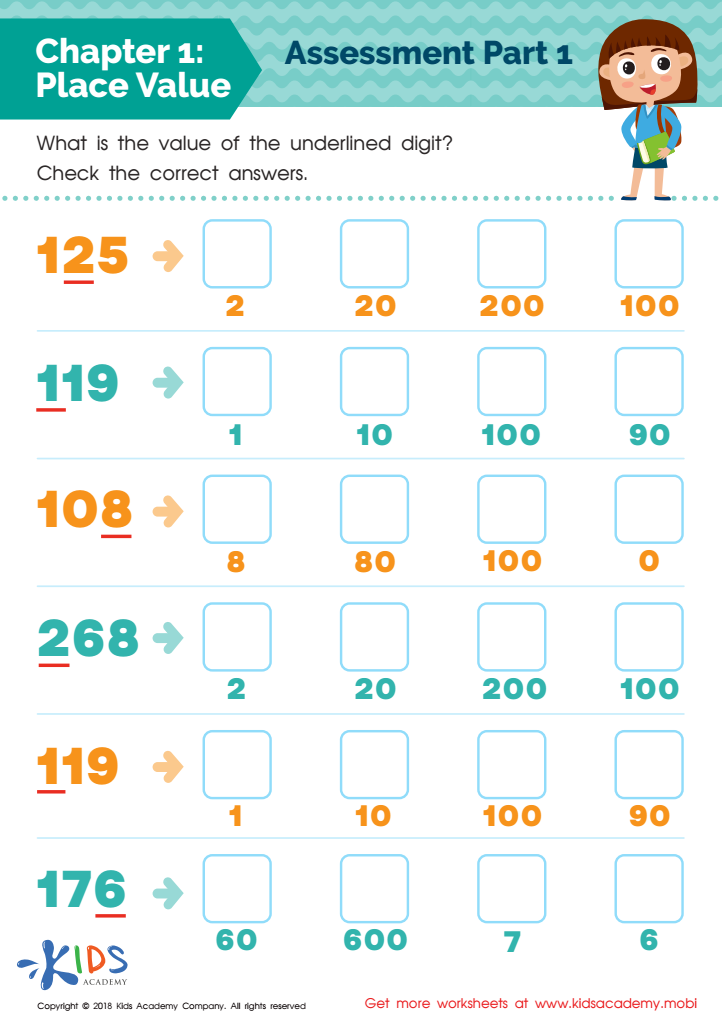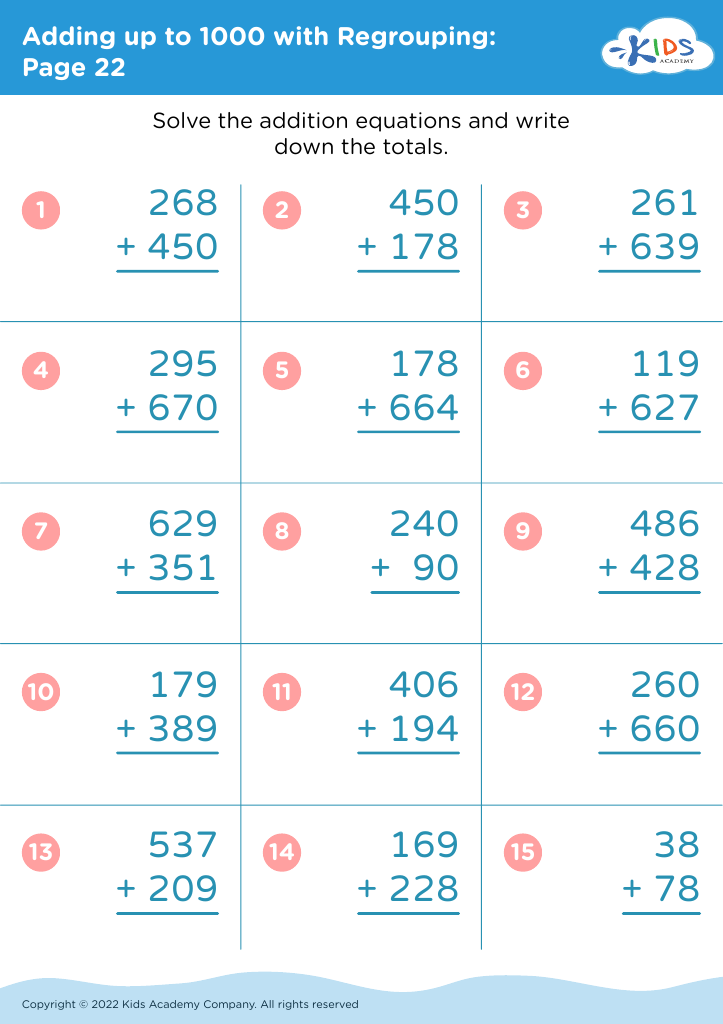Identify numbers Worksheets for Ages 7-8
3 filtered results
-
From - To
Unlock the potential of your 7-8-year-old students with our "Identify Numbers Worksheets." Tailored to develop early math skills, these engaging worksheets blend fun with essential learning. Each exercise helps children recognize and understand numbers, encouraging confidence with practical activities like number matching and counting. Created by educational experts, these printable resources are designed to challenge and entertain, ensuring that every child progresses at their own pace. Perfect for in-class or at-home learning, our worksheets provide a solid foundation in numeracy that fosters a love for math. Explore our collection today to enrich your child's educational journey!


Place Value: Chapter 1 Worksheet
At ages 7-8, children are typically in the second or third grade, which is a crucial period for developing foundational mathematical skills. It's essential for parents and teachers to prioritize identifying numbers because this skill forms the basis for more complex mathematical concepts such as addition, subtraction, multiplication, and division.
Children who can identify numbers accurately tend to perform better in math since they can follow and understand instructions more effectively. This competence allows them to engage in activities that require counting, measuring, and recognizing patterns, which are critical components of early mathematics education. Moreover, identifying numbers helps children understand the value and relationship between different numbers, laying the groundwork for place value comprehension, which is integral as they progress in math.
Furthermore, early mastery of number identification boosts children's confidence, enabling them to approach math tasks with less anxiety and more enthusiasm. This positive disposition towards math can lead to a lifelong interest in the subject, benefiting their overall academic progression.
By supporting children in number identification, parents and teachers help ensure that students build a solid mathematical foundation, become more adept problem-solvers, and improve their logical reasoning capabilities, which are all crucial skills not only academically but also in daily life.

 Assign to the classroom
Assign to the classroom














